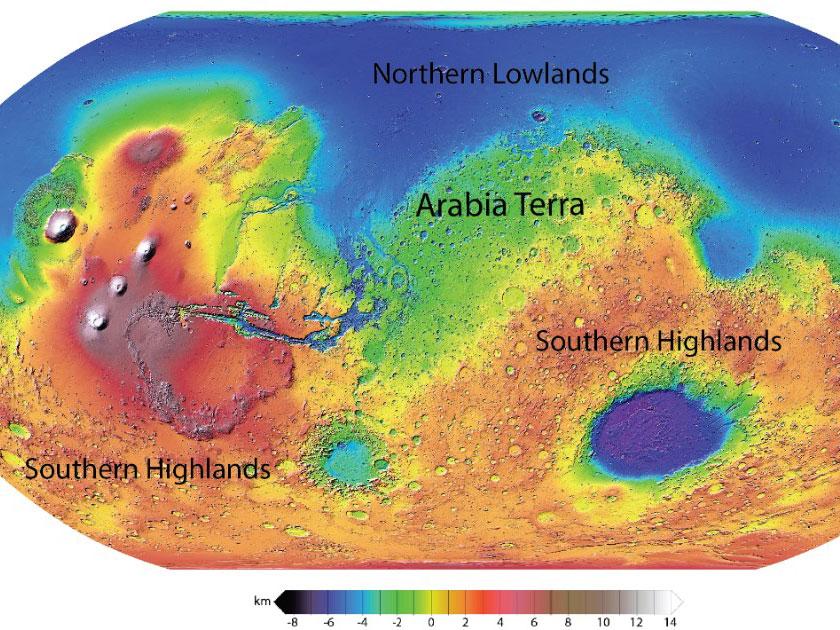Mars once had a warm and wet climate that was 'more favourable' for life
'These ancient Martian flood plains would be great places to explore to search for evidence of past life'

Your support helps us to tell the story
From reproductive rights to climate change to Big Tech, The Independent is on the ground when the story is developing. Whether it's investigating the financials of Elon Musk's pro-Trump PAC or producing our latest documentary, 'The A Word', which shines a light on the American women fighting for reproductive rights, we know how important it is to parse out the facts from the messaging.
At such a critical moment in US history, we need reporters on the ground. Your donation allows us to keep sending journalists to speak to both sides of the story.
The Independent is trusted by Americans across the entire political spectrum. And unlike many other quality news outlets, we choose not to lock Americans out of our reporting and analysis with paywalls. We believe quality journalism should be available to everyone, paid for by those who can afford it.
Your support makes all the difference.Mars once had a warm and wet climate that was “a more favourable environment for life” than the current cold and dry planet, according to researchers who found a large system of fossilised riverbeds.
Some 17,000km of what are believed to have once been giant rivers were discovered using images from Nasa’s Mars Reconnaissance Orbiter spacecraft, which have a much higher resolution than was previously possible.
The scientists believe this region of Mars, called Arabia Terra, was “essentially one massive flood plain bordering the highlands and lowlands of Mars”.
Joel Davis, lead author of a paper about the study in the journal Geology, said: “Climate models of early Mars predict rain in Arabia Terra and until now there was little geological evidence on the surface to support this theory.
“This led some to believe that Mars was never warm and wet but was a largely frozen planet, covered in ice-sheets and glaciers.
“We've now found evidence of extensive river systems in the area which supports the idea that Mars was warm and wet, providing a more favourable environment for life than a cold, dry planet.”
Mr Davis, of University College London, said the inverted river channels on Mars – similar features can be seen on Earth – were about 30m high and up to 2km wide.
“We think the rivers were active 3.9 to 3.7 billion years ago, but gradually dried up before being rapidly buried and protected for billions of years, potentially preserving any ancient biological material that might have been present,” he said.
Dr Matthew Balme, of The Open University, who also took part in the research, suggested the floodplain could hold the key to one of the greatest questions facing science – was there life on Mars.
“These ancient Martian flood plains would be great places to explore to search for evidence of past life,” he said.
“In fact, one of these inverted channels called Aram Dorsum is a candidate landing site for the European Space Agency's ExoMars Rover mission, which will launch in 2020.”
Join our commenting forum
Join thought-provoking conversations, follow other Independent readers and see their replies
Comments